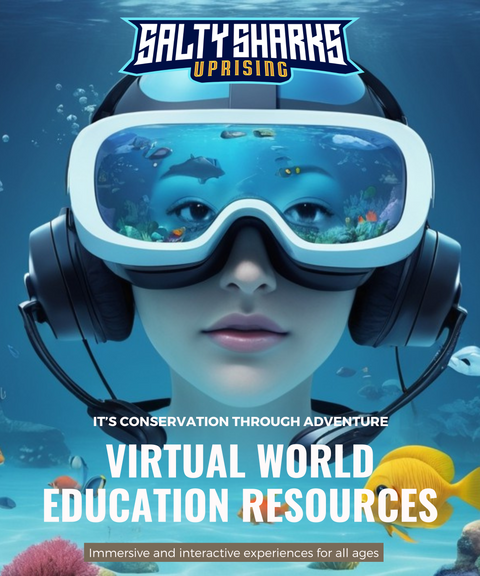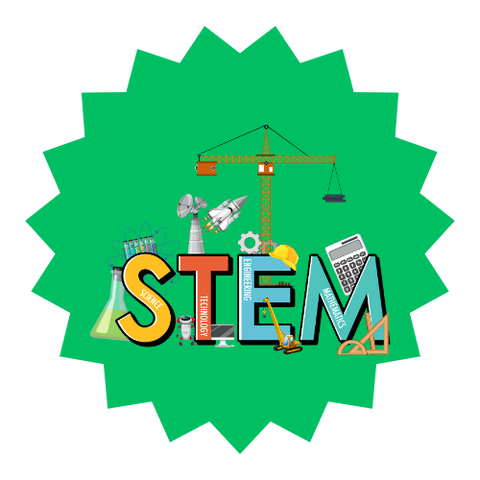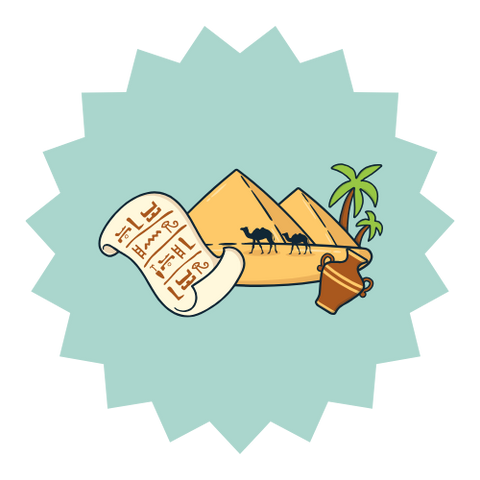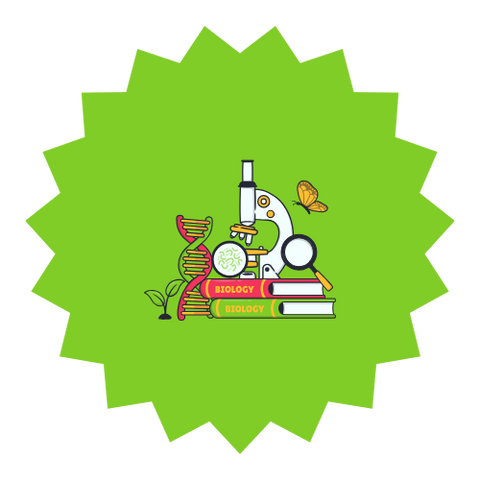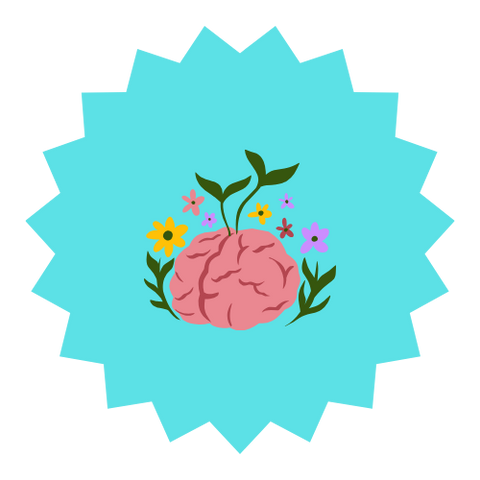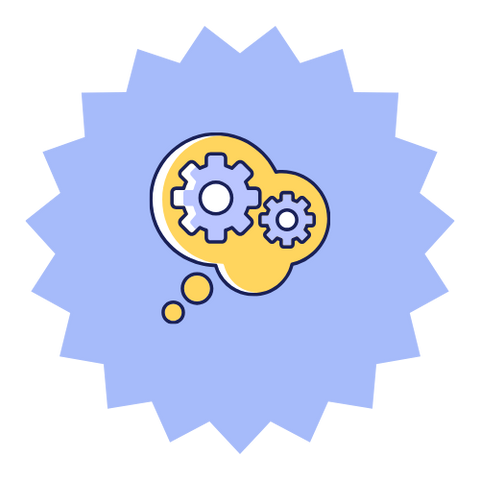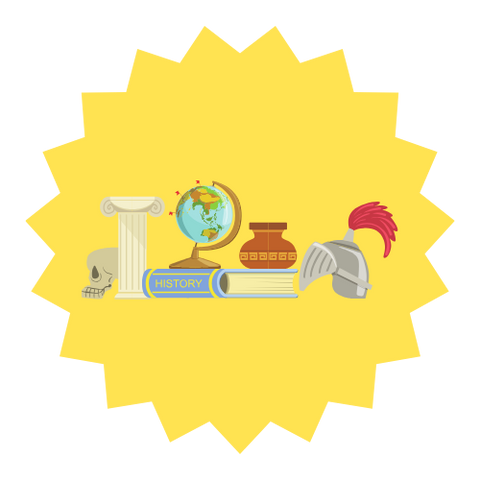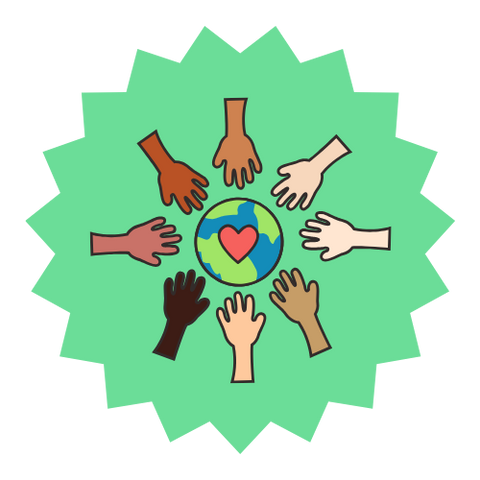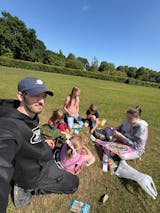Aquatic Metaverse Virtual Worlds
Ages 8 to 16.
Salty Sharks is an immersive education platform that brings STEM, history, human and marine biology, and social-emotional learning to life through virtual worlds. Founded in 2021 and fully assessed for guaranteed student safety by Safer Technology 4 Schools, our platform is designed for learners aged 8–16, and combines project-based learning with real conservation partnerships, helping students build creativity, critical thinking, collaboration, and problem-solving skills. More than 10,000 students across Australia, the UK, and beyond have already experienced Salty Sharks’ engaging, future-ready approach. Endorsed by Home School Networks in Australia, parents love that their students can drive their own learning, at their own pace with unmatched value for money. Project based learning resources are PDF based and all virtual worlds are accessed through our website directly, via web browser. Learn via computer, tablet or even immerse yourself via Meta Quest VR headsets.
- Kids Who Are Natural Explorers
- Curious, "Why?" Kids
- Hands-On Learners
- Visual and Kinesthetic Learners
- The "Different" Learners
Kids Who Don't Fit the Traditional Classroom Mold
- Children with ADHD who need high engagement and variety
- Neurodivergent learners who benefit from self-paced exploration
- Gifted students who crave depth and complexity beyond grade level
- Kids with learning differences who need alternative ways to access content
- Introverted Children
The platform's design eliminates social pressure and bullying risks while still providing rich learning experiences. Shy kids can explore freely without fear of judgment, building confidence in their abilities.
- Tech-Savvy Digital Natives
Kids who grew up gaming and expect interactive, responsive digital experiences find Salty Sharks feels natural and engaging rather than "educational" in the boring sense.
- Future Environmental Leaders
- Animal-Loving Kids
- Environmentally Conscious Youth
- Young Activists
- Families That Thrive
The "Aha Moment" Kids
These are often children who've struggled in traditional educational settings but suddenly flourish when given the right learning environment. Parents frequently report that kids who seemed disengaged with school become passionate learners when they discover Salty Sharks.
The platform seems to unlock something special in kids who need to feel emotionally connected to their learning, who want to make a difference in the world, and who learn best through exploration and discovery rather than instruction and memorization.
Pros
The End of Learning Battles
Parents rave about how their kids naturally gravitate toward the platform without being forced or bribed. As one parent noted: "The combination of learning and fun keeps them engaged while developing genuine care for marine conservation." No more fights about homework or educational screen time - kids actually request to explore the virtual worlds.
Self-Directed Learning That Actually Works
Families love watching their children take ownership of their education. Kids develop genuine curiosity and start asking deeper questions about marine life, ancient civilizations, or how their bodies work. Parents report children voluntarily spending hours researching topics that began in the virtual worlds.
Real Educational Depth Without the Overwhelm
Curriculum Integration Made Simple
Homeschool families particularly love how the platform handles the heavy lifting of curriculum alignment while allowing flexibility. As the Corvus family shared: "The Salty Sharks have been a great resource for our homeschooling family & I absolutely recommend this to any homeschooling family."
Multi-Child, Multi-Level Learning
Parents with children of different ages and abilities love that everyone can use the same platform but at appropriate challenge levels. The content scales from elementary through adult, making it a lasting investment.
Screen Time They Feel Good About
Families report feeling proud rather than guilty about their children's screen time. The educational value is obvious, and the conservation mission gives parents confidence that the content aligns with their values.
Character Development Alongside Academics
Parents notice their children developing empathy, critical thinking, and collaborative skills. As educator-parent Kirstin W noted: "My children enjoyed learning at their own pace, with content that challenged and captivated them."
Future-Ready Skills Building
Families appreciate that children aren't just memorizing facts but developing research skills, scientific thinking, and digital literacy that will serve them throughout their lives.
Constantly Growing Content Library
Families love that new virtual worlds are continuously added at no extra cost. The platform keeps evolving and expanding, providing ongoing value for the investment.
Global Accessibility
Families appreciate that location doesn't limit access - whether in rural Australia or urban Canada, children get the same high-quality experience.
The Bottom Line: Families love that Salty Sharks solves the fundamental challenge of finding educational content that's simultaneously engaging, safe, academically rigorous, and personally meaningful. It delivers on the promise that learning can be joyful, purposeful, and transformative - not just for children, but for entire families committed to raising curious, capable, and conservation-minded young people.
Cons
We are always working to improve the technical capabilities of our platform and increase the interactivity of the VR based immersion. This includes enhanced graphics balanced against device compatibility to ensure maximum outreach of the platform to home-school families globally.
Our virtual worlds education platform is approved by Safer Technology for Schools, plus Queensland State Department of Education for use in Schools or Home Schooling and Schools have been able to apply directly for government grants to co-build virtual worlds with their students directly, as recently completed by Toowoomba East State School with the Australian Platypus virtual world designed by their year 6 students who also feature in the virtual world where students can hear from their 3D avatars directly.
Charter Schools can contact us directly to inquire about the details of virtual worlds co-built with their own students over the course of an 8 week period of two hours per week.
Just $19 USD per month, or a discounted annual price of $166 USD provides access to ALL virtual worlds and all PBL + SEL student resources.
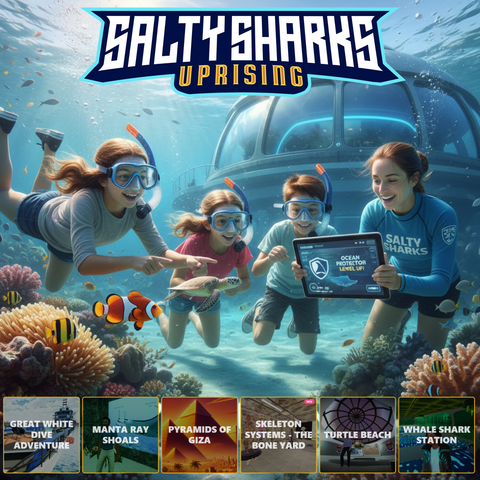
Our mission
Salty Sharks exists to ignite the next generation of ocean guardians through transformative education. We believe that lasting conservation begins with genuine passion, and genuine passion grows from immersive, entertaining learning experiences that speak to today's digital natives. By creating deep emotional connections between young learners and marine ecosystems, we're building a future where ocean protection isn't just important—it's personal.
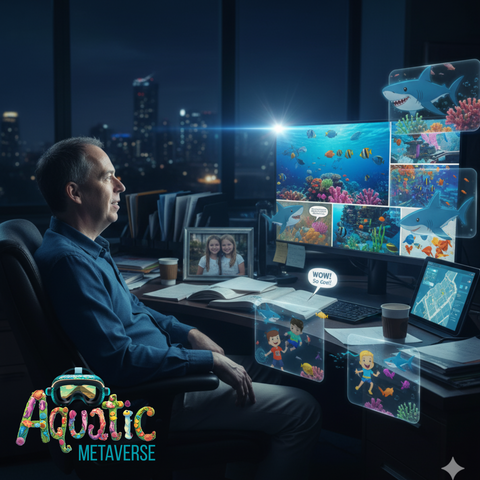
Our story
The genesis of Salty Sharks traces back to a pivotal moment in 2021, when founder Robert Keanalley was working long hours at a regional university. As a passionate scuba diver, Robert had witnessed firsthand the heartbreaking decline of marine ecosystems that had once thrived in waters he'd explored since childhood. The catalyst came while watching his two young daughters navigate their digital world with intuitive ease, preparing to enter formal education. Robert recognized a critical disconnect: while traditional conservation messaging was failing to resonate with today's tech-savvy youth, these same young minds possessed unprecedented potential to become environmental champions, if reached through mediums they naturally embraced.
FAQ: Additional Details about Aquatic Metaverse Virtual Worlds
A Morning with Mia: Deep Dive into Whale Shark Station
9:15 AM - What do we know about Whale Sharks?
9:30 AM - Active Exploration
"Did you know whale sharks can live over 100 years?" she calls to her mom, who's washing dishes nearby. "And they're filter feeders - watch this!"
9:45 AM - The Questions Begin
"Why do whale sharks have those white spots? Are they all different like fingerprints? Where do they go when they leave the reef? How do scientists track something this big in the whole ocean?"
10:00 AM - Project Launch
Her eyes light up as she reads: "Design a Whale Shark Research Expedition."
10:15 AM - Research Mode Activated
10:45 AM - Creative Problem-Solving
11:15 AM - Real-World Connections
11:30 AM - The Learning Continues
Even after closing the laptop, Mia can't stop talking about whale sharks. She's already asking if the family can visit an aquarium soon, wondering if their local beach might have plankton that whale sharks would eat, and planning to check out every whale shark documentary from the library.
The morning's "lesson" seamlessly blended into real curiosity that will drive her learning for days or weeks to come. She experienced the taste of being a real marine researcher, felt the excitement of scientific discovery, heard the sounds of the ocean environment, saw incredibly realistic marine life, and touched the real tools of learning through her hands-on project work.
How Salty Sharks Works in Your Homeschool: A Parent's Practical Guide
Getting Started: The First Week
Day 1: Setup (15 minutes)
1. Visit www.saltysharks.io and purchase your homeschool subscription
2. Receive login credentials via email
3. Log in using any web browser (Chrome or Safari recommended)
4. If wanting to access on multiple devices simultaneously, invite your students via their own email address (max 5) so they have their own account.
Day 2-3: Exploration Phase
Let your child freely explore 2-3 virtual worlds to see what captures their interest. Common favorites:
- Turtle Beach (conservation + storytelling)
- The Bone Yard (Human biology exploration of the human skeleton)
- The Pyramids of Giza (history + archaeology)
Day 4-7: First Project Launch
Choose one world that excited your child and begin the associated AI-enhanced PBL (Project-Based Learning) activity.
How Learning Actually Happens
Step 1: Virtual World Exploration (30-60 minutes)
Your child enters a 3D environment and explores freely. For example, in Whale Shark Station:
- They explore alongside virtual whale sharks
- Discover interactive information points about plankton food chains
- Observe feeding behaviors and migration patterns
- Collect data about ocean biodiversity
Step 2: AI-Enhanced Project Launch (15 minutes)
The AI system presents personalized project options based on what your child explored:
- "Design a marine monitoring system"
- "Research whale shark migration patterns"
- "Create a plankton food web diagram"
- "Write a conservation action plan"
Step 3: Self-Directed Research (1-3 hours over several days)
Your child investigates their chosen project using:
- Platform resources and research tools
- External research (guided by project prompts)
- Data collection from their virtual world exploration
- Creative expression through various formats
Step 4: Project Creation and Reflection (2-4 hours)
Projects might include:
- Research presentations
- Creative writing pieces
- Scientific diagrams or models
- Action plans or proposals
- Digital portfolios
Integration with Different Homeschool Styles
Traditional/Structured Homeschoolers
- Use virtual worlds to introduce new units
- Align projects with specific curriculum standards
- Schedule 3-4 sessions per week (45-60 minutes each)
- Use provided curriculum guides for grade-level expectations
Charlotte Mason Method
- Use virtual worlds as "living books" - rich, engaging experiences
- Focus on narration after virtual world exploration
- Nature study connections (especially marine environments)
- Character development through conservation themes
Science Standards
- Marine Biology: Ocean ecosystems, species behavior, conservation
- Human Biology: Skeletal system, body systems (via The Bone Yard)
- Environmental Science: Climate, biodiversity, ecosystem interactions
- Research Methods: Data collection, hypothesis formation, analysis
History/Social Studies
- Ancient Civilizations: Egypt (Pyramids of Giza world)
- Archaeology: Research methods, historical investigation
- Geography: Ocean systems, global ecosystems
- Cultural Studies: Human-environment interactions
Language Arts
- Research and writing skills through project work
- Scientific communication
- Creative writing inspired by virtual experiences
- Reading comprehension through platform resources
Mathematics
- Data analysis and graphing (population studies, migration patterns)
- Geometry (pyramid construction, marine architecture)
- Statistics (conservation research, population modeling)
Tracking Progress and Assessment
Natural Portfolio Development
Projects automatically create portfolio evidence showing:
- Research skills development
- Subject matter knowledge
- Creative expression
- Critical thinking growth
Observable Learning Outcomes
You'll notice your child:
- Asking deeper questions about topics
- Making connections between subjects
- Developing stronger research skills
- Showing increased environmental awareness
- Demonstrating improved digital literacy
Flexibility for Different Learning Paces
- Advanced learners can dive deeper into complex projects
- Struggling learners can focus on exploration and basic concepts
- Multiple intelligence types are naturally accommodated
What Parent Involvement Looks Like
Minimal Supervision Needed
- Platform is completely safe - no communication features
- Children can explore independently
- AI guidance helps structure learning
Optional Parent Engagement
- Explore virtual worlds together
- Discuss what they discovered
- Help with research questions
- Celebrate completed projects
Integrating the project based learning activities with the virtual worlds will ensure you get the most out of these resources with minimal parental involvement.
A recent model tablet, or computer with 16GB Ram and good internet connection.
ADHD Learners - Outstanding Match
Why It Works Exceptionally Well:
• High engagement eliminates attention drift - immersive 3D environments naturally capture and hold ADHD attention
• Movement-based learning - virtual navigation satisfies kinesthetic needs without classroom disruption
• Interest-driven hyperfocus - when ADHD learners find their "thing" (often marine life or specific topics), they can explore deeply without time pressure
• No boring transitions - seamless movement between activities maintains engagement flow
• Immediate gratification - interactive elements provide instant feedback and rewards
Specific Advantages:
• Can pause and resume without losing place or momentum
• Self-paced exploration accommodates varying attention spans throughout the day
• Multiple entry points mean they can start wherever interests are highest
• Physical movement (mouse/trackpad navigation) helps with focus
• Visual-rich environment reduces reliance on text-heavy traditional learning
Autism Spectrum - Excellent Compatibility
Why It Works So Well:
• Predictable, safe environment - no social unpredictability or sensory overwhelm from peers
• Special interest integration - platform can accommodate intense focus on marine life, ancient history, or human biology
• No social pressure - learn without masking or social navigation stress
• Clear structure within flexibility - virtual worlds have consistent rules and navigation
• Detailed, factual information - satisfies need for deep, accurate knowledge
Specific Strengths:
• Randomized avatar names eliminate social anxiety about identity
• No unexpected social interactions or communication demands
• Can repeat experiences exactly until fully understood
• Rich detail in virtual environments rewards careful observation
• Systematic approach to research projects appeals to logical thinking patterns
Dyslexia - Good Match with Accommodations
Platform Strengths:
• Heavily visual and experiential - reduces reliance on reading-heavy content
• Audio components available in many virtual worlds
• Learning through exploration rather than text-based instruction
• Project flexibility - can demonstrate knowledge through various formats beyond written work
Recommended Accommodations:
• Use text-to-speech browser extensions for reading platform content
• Allow verbal project presentations instead of written reports
• Focus on visual documentation (screenshots, drawings, diagrams)
• Partner with parents/siblings for reading-intensive research portions
• Emphasize hands-on, experiential learning aspects
Sensory Processing Differences - Variable Compatibility
Potential Challenges:
• Screen-based learning may overwhelm or under-stimulate depending on individual sensory needs
• Virtual environments might be too stimulating or not stimulating enough
• Headphone use for audio may be problematic for some learners
Adaptation Approaches:
• For Over-Responsive Learners: Lower screen brightness, reduce audio volume, take frequent breaks, use larger screens to reduce eye strain
• For Under-Responsive Learners: Use vibrating controllers if available, increase visual contrast, combine with tactile activities
• General Strategies: Allow standing/movement while using platform, combine virtual exploration with real-world sensory experiences, adjust session length to individual tolerance
Success Indicators: Works well when sensory needs are properly addressed and virtual content connects to strong interests.
Universal Design Features That Support All Learners
Built-in Accessibility Features:
• Multiple input methods - mouse, trackpad, keyboard, potentially VR controllers
• Flexible pacing - no time limits or forced progression
• Multiple representation formats - visual, auditory, kinesthetic, textual
• Interest-driven pathways - can start with strongest areas of engagement
• Safe environment - eliminates social pressures that compound learning challenges
Neurodiversity-Friendly Design:
• Predictable navigation across all virtual worlds
• No surprise social interactions or communication requirements
• Detailed, factual information that rewards careful attention
• Systematic research processes that can be repeated and refined
• Connection to special interests often found in neurodivergent learners
Bottom Line: Salty Sharks' strength lies in its ability to engage diverse learners through their areas of interest and strength while providing flexible pathways for demonstrating knowledge. The platform works exceptionally well for learners who struggle with traditional academic formats but thrive with visual, experiential, and self-directed approaches. Success typically depends more on interest alignment and proper support than on specific learning difference categories.
Gifted Learners - Natural Alignment
Why It's Particularly Effective:
• Intellectual complexity - AI-enhanced projects can scale to match advanced thinking
• Cross-curricular connections - satisfies need to see relationships between subjects
• Open-ended exploration - no ceiling on how deep they can investigate
• Authentic research - connects to real scientific work and conservation efforts
• Purpose-driven learning - meaningful conservation mission appeals to gifted learners' desire for significance
Advanced Capabilities:
• Can pursue graduate-level research questions within accessible format
• Accommodates asynchronous development (advanced thinking, age-appropriate presentation)
• Provides intellectual peers through connection to real scientific community
• Self-directed learning matches preference for autonomy
2e (Twice Exceptional) - Strong Compatibility with Support
Natural Strengths:
• Bypasses traditional academic weaknesses while engaging intellectual strengths
• Multiple intelligence pathways - visual, kinesthetic, logical all supported
• Reduces frustration from traditional academic formats that highlight deficits
• Interest-based learning leverages areas of strength and passion
Adaptation Strategies:
• Use virtual world exploration to build confidence before tackling challenging projects
• Allow voice-to-text or other assistive technologies for project documentation
• Focus on areas of strength (often visual-spatial, logical-mathematical) while gently supporting growth areas
• Break complex projects into smaller, manageable components
• Celebrate discoveries and insights regardless of final project format
Profoundly Gifted - Exceptional Match
Why It Excels:
• No learning ceiling - can connect to university-level research and primary sources
• Complex systems thinking - virtual ecosystems support sophisticated analysis
• Real-world impact - connection to actual conservation research provides authentic significance
• Multi-layered content - can explore same virtual world at increasing levels of sophistication over years
• Intellectual stimulation - complex environmental, historical, and biological systems to analyze
Unique Benefits:
• Can treat virtual worlds as research laboratories for original investigations
• Appeals to existential concerns about environmental and global issues
• Provides outlet for intense intellectual curiosity without social complications
• Accommodates need for expert-level information and authentic challenges
ADHD Learners - Outstanding Match
Why It Works Exceptionally Well:
• High engagement eliminates attention drift - immersive 3D environments naturally capture and hold ADHD attention
• Movement-based learning - virtual navigation satisfies kinesthetic needs without classroom disruption
• Interest-driven hyperfocus - when ADHD learners find their "thing" (often marine life or specific topics), they can explore deeply without time pressure
• No boring transitions - seamless movement between activities maintains engagement flow
• Immediate gratification - interactive elements provide instant feedback and rewards
Specific Advantages:
• Can pause and resume without losing place or momentum
• Self-paced exploration accommodates varying attention spans throughout the day
• Multiple entry points mean they can start wherever interests are highest
• Physical movement (mouse/trackpad navigation) helps with focus
• Visual-rich environment reduces reliance on text-heavy traditional learning
Autism Spectrum - Excellent Compatibility
Why It Works So Well:
• Predictable, safe environment - no social unpredictability or sensory overwhelm from peers
• Special interest integration - platform can accommodate intense focus on marine life, ancient history, or human biology
• No social pressure - learn without masking or social navigation stress
• Clear structure within flexibility - virtual worlds have consistent rules and navigation
• Detailed, factual information - satisfies need for deep, accurate knowledge
Specific Strengths:
• Randomized avatar names eliminate social anxiety about identity
• No unexpected social interactions or communication demands
• Can repeat experiences exactly until fully understood
• Rich detail in virtual environments rewards careful observation
• Systematic approach to research projects appeals to logical thinking patterns
Dyslexia - Good Match with Accommodations
Platform Strengths:
• Heavily visual and experiential - reduces reliance on reading-heavy content
• Audio components available in many virtual worlds
• Learning through exploration rather than text-based instruction
• Project flexibility - can demonstrate knowledge through various formats beyond written work
Recommended Accommodations:
• Use text-to-speech browser extensions for reading platform content
• Allow verbal project presentations instead of written reports
• Focus on visual documentation (screenshots, drawings, diagrams)
• Partner with parents/siblings for reading-intensive research portions
• Emphasize hands-on, experiential learning aspects
Dysgraphia - Good Compatibility with Modifications
Platform Advantages:
• Minimal required writing during exploration phases
• Flexible project formats - can create videos, presentations, artwork instead of written reports
• Voice recording options for reflection and documentation
• Visual organization tools reduce need for extensive written planning
Supportive Strategies:
• Use voice-to-text technology for project documentation
• Create visual portfolios using screenshots and drawings
• Allow oral presentations instead of written project submissions
• Use mind mapping and visual organization tools
• Focus on the research and discovery aspects rather than written documentation
Students and parents should respect the learning journey of others, by giving them virtual space inside the virtual worlds and not crowding them or being disruptive with the use of available emoticons. Students can not speak to other students as these functions are turned off for greater student safety.
Monthly subscriptions do not come with a refund upon cancellation of subscription, but access to the platform is maintained during remainder of the paid subscription. Annual subscriptions can be pro-rata refunded manually, so the subscriber would just need to contact our team for this to be arranged.
These resources are not computer games with high fidelity graphics and addictive breadcrumb-style questing. Kids looking for gaming applications will be disappointed as the focus is on educational content delivered in an immersive, engaging, virtual world environment that has gamification elements.
We recommend breaking up screen time with real-world based activities that draw upon their learning within the virtual worlds. Search for real-world activity PBLs on our resources page for ways to reinforce the learning and embrace the natural world with a new perspective.
Our latest virtual world on the human respiratory system has received outstanding reviews for it's incredible immersion, content and challenging learning reinforcement game.
We are also working on a very special Mediterranean virtual world that takes the student into some of the adventures of Homer's Odyssey.
Getting Maximum Value from Salty Sharks: A Family Success Guide
- Start with the Right Mindset
- Embrace the "Learning Journey" Philosophy
- Follow Your Child's Natural Curiosity
- Expect the Unexpected
The "Spiral Learning" Method
Return to the same virtual worlds multiple times as your child develops:
- First visit: Wonder and exploration
- Second visit: Deeper investigation and questions
- Third visit: Expert-level research and connections
A 10-year-old and 14-year-old will have completely different experiences in the same virtual world.
Extend Projects into Real Life
- Virtual shark research → Visit local aquarium or beach cleanup
- Pyramid exploration → Museum trip or Egyptian cooking
- Human biology study → Family fitness challenges or anatomy models
Don't Rush Through Content
- Resist the urge to expose your child to all virtual worlds quickly
- Allow for repetitive exploration - it's actually building deeper understanding
- Quality of engagement matters more than quantity of worlds visited
Don't Underestimate Projects
- Give AI-enhanced PBLs time to develop - they're more sophisticated than they first appear
- Allow projects to evolve beyond initial scope if child interest is high
- Don't abandon projects too quickly if initial engagement seems low
Don't Isolate the Learning
- Connect virtual world discoveries to books, documentaries, and real-world experiences
- Share learning with others - teaching others solidifies understanding
- Look for local connections to virtual world content
The Ultimate Success Formula: Families get maximum value when they treat Salty Sharks as a launching pad for broader learning adventures rather than a contained educational product. The platform works best when it sparks curiosity that extends far beyond screen time into books, conversations, real-world exploration, and family action around conservation and learning.

Meet Robert Keanalley
Robert Keanalley brings over two decades of strategic leadership in project and business management across diverse industries, with specialized expertise in technology integration, educational innovation, and organizational development. A certified rescue diver, published author, and dedicated father of two daughters, Robert combines his experience in higher education with his lifelong passion for marine conservation to address critical gaps in contemporary learning. His unique perspective bridges traditional educational frameworks with cutting-edge technological solutions.
Modulo's expert opinion
Our learning specialists give their honest evaluation
Aquatic Metaverse Virtual Worlds gives kids a portal to explore marine science through immersive technology that makes learning unforgettable.
This is such a wonderful platform. The virtual worlds are extremely engaging, immersive, educational, and entertaining for kids (and adults!) of all ages. The variety of content available across different subjects is great, and I really love that new content is continuously added at no extra cost.
Absolutely incredible immersive experience! Can’t recommend highly enough!
I've watched the salty verse built from promises to (virtual) reality! I wish I had these kinds of resources when I was a kid. Given the opportunity to play computer games as part of my lessons would have been a game changer for me. Sitting in a class room with a text book is a sure fire way to disengage the learning part of my brain. This resource will engage so many children by kids learning without even realising it. Great resource that continues to get better with every new environment added.
I have 5 children aged 16, 12, 7 ,5 & 3, one with ADHD & one with high functioning autism and they all love this, they learn, laugh and love every element of this entire ecosystem, the icing on the cake is the sea life conservation but the cherry on top is the pricing, absolutely amazing and affordable! Truly grateful for this epic resource!
Highly recommended from a father of 5!
It is incredible the level of quality new tech educational products created by Rob and his team. Amazing value for your money and such a positive impact on the world around us and adding value to the educational syllabus to a vary of ages and school level. A must buy and experience which is unforgettable!

